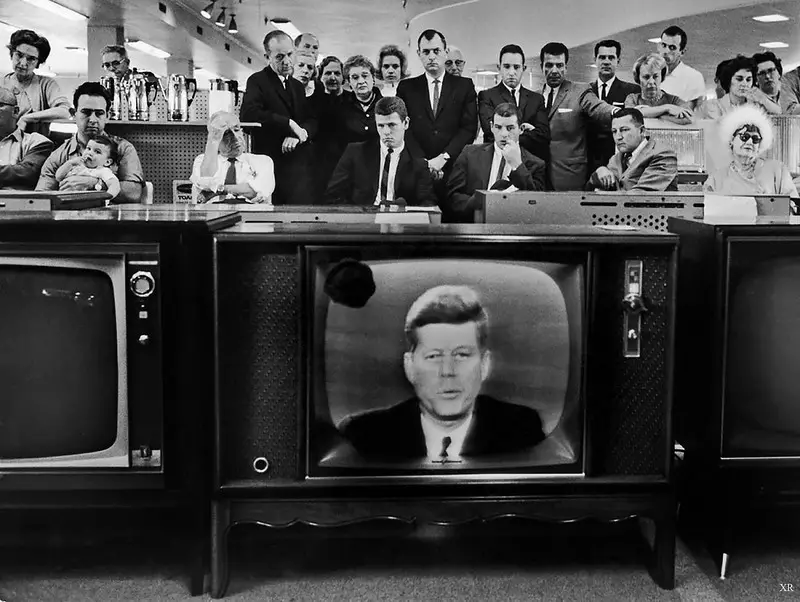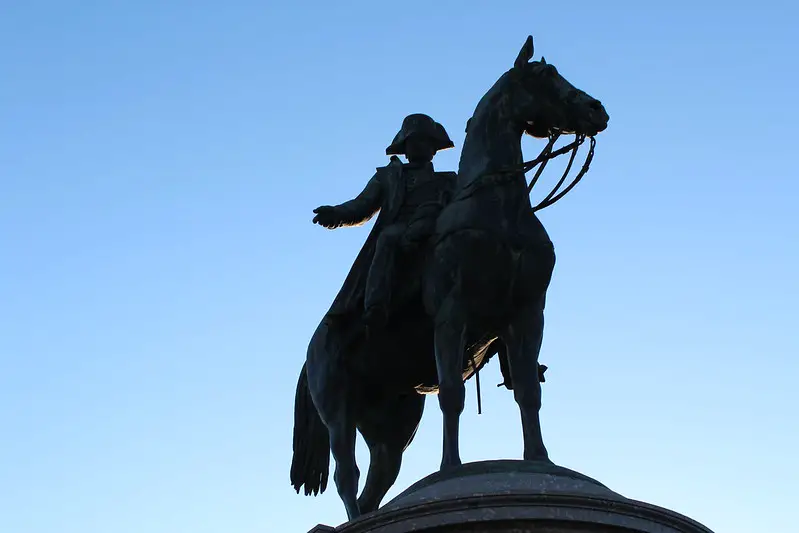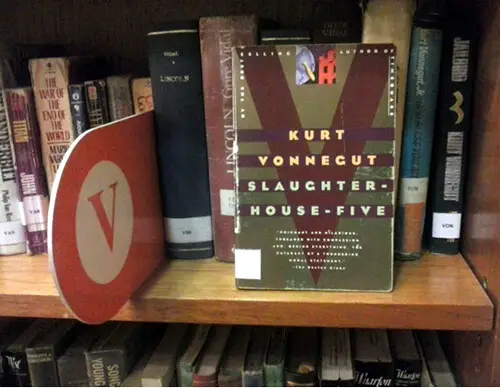When was the last time you stood still? Dropped your devices, disregarded your notifications and only used a minute being still? Being present, attentive and thoughtful?
In this present busy, noisy, disrupting and continuous world, it’s difficult to remain still. However, history’s greatest thinkers, as well as leaders, have realized that stillness is a secret device. Stillness provides instants of abundant clarity and creativity, it makes you win over the anger you may have and makes room for gratitude and celebrate in the pleasure of life.
This book summary explains that stillness is not essentially about inactivity. However, It’s about great instants that can transform your life. Anyone can practice being still, even when the world that surrounds you turn.

1 – Stillness is the way of having peace, clarity, and gladness in this busy and noisy world.
During the first century AD Rome, one day while Lucius Annaeus Seneca who is the great broker, and philosopher, was attempting to work.
It was difficult. There was continuous noise in Seneca’s surroundings, from the groaning of athletes putting down their weights in the gym under his room to the barking of dogs and sellers making noise in the street underneath.
Seneca’s inner surrounding was just as disordered. His finances were being threatened, his foes had eliminated him from the political life and he wasn’t getting favor with his patron, Emperor Nero. On the whole, it was not a condition favorable to do anything, talkless of doing anything of value like thinking deeply, creativity, and decision-making.
It’s a difficulty that a lot of us experience presently. Things are noisier in our own time and world. To the talk and noise of Seneca’s surroundings, we can include loud phone call discussions and planes above. We’re strained from a lot of inboxes and continuous notifications on social media.
Therefore– what can you do?
Seneca was able to seek peace even in the noise by accepting stillness.
The main point here is: Even in a busy, noisy world, stillness is the way to peace, clarity, and happiness.
Therefore what is the meaning of stillness? It may look abstract, however, you can tell when you feel it. If you’ve ever focused really well that a rush of understanding hits you, then you know what stillness is. If you’ve given a powerful performance that you have practiced for months to an audience, that’s stillness. If you’ve ever seen the morning sunrise slowly and felt warmth at the sensation of being alive, you’ve experienced the stillness.

In a situation, as the poet Rainer Maria Rilke explains, we are filled and complete. He writes that “the entire casual and approximate are muted”. This is the reason why Seneca was able to “mute” his disordered inner and outer surroundings and discover the calmness needed to write insightful, powerful philosophical essays that have impacted millions of people today.
Seneca understood that if people could seek peace in themselves, they can still think, work and function even though the world that surrounds them was at conflict.
Seneca existed thousands of years ago, however, the power of stillness stands. All around the globe, philosophers and religions have all accepted stillness, giving it a lot of names: The Buddhists call it upekkhā. Muslims, aslama. Christians, aequanimitas.
Stillness can be seen in the entire world and all over history. In the next chapters, we will look at how to accomplish it for ourselves.
2 – Slowing down things and repelling our gut feelings can enable us to survive very hard disasters.
On the 15th of October 1962, John F. Kennedy woke up to an intensely transforming world.
While he was still sleeping, the CIA had found Soviet nuclear missile spots being put in Cuba, which was only less than a hundred miles from the American coast. Unexpectedly, America was tormented with the likelihood of a nuclear occurrence.
Kennedy was really stressed, who was aware that if the Soviet aggravation resulted in war, a minimum of seventy million people would probably die in the first nuclear attacks.
The suggestions his advisers gave was precise and completely instinctive: Aggression has to be faced with more aggression, therefore the missile spots had to be damaged. The challenge here was that if this method was unsuccessful, it would cause a disastrous nuclear war.
The thirteen days after that have been identified as the Cuban Missile Crisis.
In spite of everything at risk, Kennedy was able to withstand the huge weight on him. How did he think logically and direct the crisis well?

The main point here is: Slowing down things and repelling our gut feelings can enable us to survive the hardest disasters.
Kennedy had to first slow things down. Rather than making a rash decision, he remained insightful. The notes that were written by him from that time are proof of a type of reflective process at work. On the pages, he wrote “Missile. Missile. Missile.” or “Leaders. Leaders. Leaders.” On one pad, he sketched two sailboats, serenely sailing.
Without having the time to sail by himself, Kennedy swam in the White House pool in order to have room for thinking. Also, he searched for peace and privacy in the Rose Garden; afterward, he appreciated the resident gardener for her role in resolving the crisis.
Ultimately, he declared a blockade of Cuba. It didn’t fix the crisis, however, Kennedy had concluded that an instant result wasn’t really essential than ensuring his opposite number, Soviet president Nikita Kruschev, also had the time and space to deliberate.
Kruschev also did. The Soviet leader wrote to Kennedy eleven days after the start of the crisis. In his note, he said was if leaders do not show statesmanlike wisdom, they will fight, which will result in mutual wiping out. The crisis ended, and debates over the removal of missiles started
Kennedy had assisted to put the world back from a global catastrophe. He didn’t do that by a chest-beating display of strength, or the threat of aggression, rather through seeking the time and space – the stillness – to deliberate on his decisions thoroughly and select the smartest way.
3 – Be present, and set boundaries on the inputs in your life.
At New York’s Museum of Modern Art in 2010, the artist Marina Abramović changed stillness into an act of endurance. She sat, remained still and silent and completely present in every moment for 750 hours across 79 days. She talked about her stillness with over fifteen hundred strangers that visited her.
People came, hour after hour, day after day. Every time, she used a minute to look down, calmed herself, and then glanced at her new visitor. She was aware that it would suddenly be obvious to the person opposite her if she began daydreaming or displayed tiredness or boredom, and thus she concentrated only on the present moment.
The main point here is: Be present and restrict the inputs in your life.
Visitors who were sitting across Abramović viewed the experience as powerful. Some people even cried because it’s really uncommon to witness another person being fully and totally present.
Since in this present day, we’re mostly attempting to leave the moment. Rather than enjoying a beautiful sunset, we snap a picture of it. Or if we have a quiet evening in our house, our minds think through the things that need to be done. Staying and standing in line to see Marina Abramović, we look at our phones.
It is not a surprise that we battle to be present when we’re regularly flooded with information. We feel a serious desire to remain on top of that information, going through all the emails, watching news several times a day and checking actual updates from our friends’ lives on social media.

We should take a life lesson from Napoleon. The great general who purposely delayed replying to his letter. He told his secretary to open any letter only after three weeks. When he eventually read the letter, Napoleon enjoyed seeing how frequently the allegedly urgent issue had simply fixed itself.
That’s doesn’t mean Napoleon was inattentive. That is not true. However, he had the knowledge to choose and set boundaries on his inputs. He told his messengers not to even disturb him from sleep with good news, which could wait. However, bad news needed an immediate wake-up call. For that, Napoleon stated that there’s no time to lose.
Therefore, create some boundaries. Make use of “Do not disturb” to prevent calls. Divert emails to subfolders. Stop being friends with toxic people who only bring unimportant drama to your life. Accept a more philosophical, long-term perception, instead of pursuing the world’s events minute by instant.
Block out the unending inputs, the noise of the world, and you’ll see stillness.
4 – Journaling can enable you to think deeply about your life, and also think well.
On the 12th of June 1942, Anne Frank wrote for the first time in her diary. She wrote that she wished she would be able to reveal everything to her diary and that it would serve as a means of comfort to her. Only 24 hours after, Anne’s family was required to hide from the Nazis.
Anne kept writing, a practice that kept rewarding her with valuable understandings, even under the terrible situations she and her family were in. She got to understand that writing can be a method to see yourself as a stranger, providing a new perception of your deeds. She wrote once that, how noble everybody would turn if at the end of the day they went through their behavior. Definitely, we would all attempt to do better the next day.
The main point here is: Journaling can enable you to think deeply about your life, and to think well.
The first person to understand this wasn’t Anne Frank. For instance, our stoic philosopher friend Seneca, wrote in his journal all night. He wrote all the information and hid from no tough truth. He said, after doing that, he slept well.
History is filled with other notable journalers, like Oscar Wilde, Queen Victoria, tennis champ Martina Navratilova, and baseball all-star Shawn Green. It is no surprise that– there’s obvious proof that journaling develops our well-being.

Also, various studies have demonstrated that having a journal helps to restore well-being after traumatic occurrences. A study conducted at the University of Arizona revealed that people experiencing divorce found it easier to move on if they write about their experiences in a journal.
Therefore, to bypass the daily noise of the world and concentrate on the very essential reflections of the day, attempt holding a pen and paper. After you do that, take the case of Seneca’s and be certain to deal with any difficult questions that occur: Why was I really agitated about this today? Why do I care about swaying my colleagues? How did today’s difficulties expose my behavior? Honestly and considerately tackling these questions will ensure that you’re getting the best of journaling.
What’s the best approach to begin? The how, when and where doesn’t really matter. The essential thing is simply having a quiet moment to get things out of your chest. To seek stillness through writing and thinking.
Journal in the evening, the morning, or for just five minutes while on the train; anywhere you can. It might be the most essential time of your entire day.
5 – Nurturing silence will enable you to really hear.
Life is really noisy. There are phones ringing, notification sound, and a lot of us use headphones every day, preventing unwanted noise with a new noise.
The main point here is: Nurturing silence will enable you to really hear.
Sitting in an airplane having no place to go, you can grasp how we really depend on “noise” to avoid silence. We see terrible movies or hear podcasts instead of sitting in silence and consider the terrain of our thoughts. However, why focus our minds over to distracting noise when we could rather take benefit of the great riches that silence provides us?
Those riches are things that experimental music composer John Cage understood deeply. Cage had constantly been captivated by silence. In a high school speaking competition in 1928, he even stated that the United States should create a national day of quiet. It was the start of a life spent discovering what silence essentially is.
Cage’s most popular creation, named 4’33, is a masterpiece with a twist: it’s a four-minute, thirty-three-second-long section of nonstop silence.
In a pianist’s first show of the piece, the audience sat down and were listening to the silence. During the first movement of the piece, they were able to hear the wind from outside the hall. During the second one, they heard raindrops falling on the roof.

Cage identified something significant after the show. He said that there is actually no silence and what we consider as silence isn’t really silent, because it’s full of unintended sounds. By providing people with silence, Cage was assisting them to begin really hearing.
There’s a lesson there for all the people whose lives are really noisy. Silence, or lack of noise, can enable us to refocus and to seek clarity. To discover stillness.
Randall Stutman a Leadership expert who works with CEOs and Wall Street leaders, once studied how business influentials revitalize during their holiday. The main thing he found was lay in spending time in settings with a slight noise, enjoying activities such as long-distance cycling, swimming or scuba diving. There, these leaders revitalized by evading from the voices that tangled their working lives.
Reducing the noise such as that enables us to find a deeper awareness of what surrounds us. That could signify the simple consciousness of the raindrop on the roof as a pianist sits silently at a piano. Or it could also signify the answers to your business difficulties, which come up on your head during your twentieth mile on the bike.
6 – We can only be really happy if we possess peaceful souls and peaceful minds.
Tiger Woods was the winner of an eighteen-hole playoff to win the US Open golf championship for the third time in June 2008. That was his fourteenth win at a major, and some people labeled it as one of the best wins ever witnessed in the sport. In addition, he did the entire thing with a broken leg that was divided into two places.
That was the peak of Woods’s profession. However, soon after, the golfer’s world crumbled. For up to 21 days, the front page of the New York Post was full of the information of his affairs with porn stars and waitresses, and dates in church parking lots and with the young daughters of family friends. His secret life revealed and Woods didn’t win any major for more than ten years.
The main point here is: We can only be really happy if we possess peaceful souls and peaceful minds.
It was said by Thich Nhat Hanh the Vietnamese monk that although the surface of the ocean may look still, beneath it is waves. That was precisely the case for Tiger Woods, a man well known for his skill to seek stillness in instants of stress who was, actually, at the aid of powerful rip waiting under the surface.
It not a surprise once you get to know how Tiger Woods was brought up to be a champion. His father, knowing that golf depends on a skill to have a clear head, would torment Woods as he attempted to begin, referring to him as a “motherfucker” or throwing racist abuse at instants of high concentration. His mother threatened to hit him if he destroyed her status as a parent.

According to Woods, he was brought up as a cold-blooded killer on the golf course. And that worked for him. The way he was raised made him a great champion. However, that also gave him a deeply troubled soul, which made him abandon and betray his family in search of dishonest and eventually disappointing affairs.
After Woods pondered on this time in his life and understood that if you’re lying every time, life isn’t fun. The story of Woods displays that the persistent search of anything isn’t deserving if we destroy our souls in the process.
As we’ve understood, stillness is beneficial for being more effective in business or in sports. However, what is its usefulness if in our personal lives when are like hot-blooded, violent bulls than the calm monks we wish to be? Our happiness and our contentedness in life stem from attaining stillness of the soul.
7 – Overcoming desire and embracing that you have enough will enable you to live a contented life.
Not every John F. Kennedy’s deed during the Cuban Missile Crisis showed the principles of stillness. At a point, with American and Soviet forces on the edge of war, Kennedy had a date at a hotel close to the White House with a 19-year-old student from Wheaton College. The very powerful man in the world was being deceived by his base desires at a crucial time.
However, if that sounds shameful to you, take a minute to think about the number of times you have been driven by desire. The majority of us fall victim to desire, either for a beautiful person, power, or the current iPhone or money.
The main point here is: Overcoming desire and embracing that you have enough will enable you to live a contented life.
If we’re excessively driven by our desires, it tends to be more difficult to attain real contentedness. That’s is as a result of superficial desires, in opposition to those that cause more noble pursuits, typically come with a price. Epicurus the Greek philosopher had a good test for differentiating between the two of them: any time he experienced being pulled by a new desire, he questioned himself, “How will I feel after if I truly achieve what I want?”
Questioning yourself like this will enable you to concentrate on the hangover, and not only how the drink tastes; on the feeling of guilt, and not only the pleasure of the affair.
Once you know how to control your desires, it might possibly be easier to take a significant step toward seeking stillness: embracing that you have enough.

The writers namely Kurt Vonnegut and Joseph Heller once went to a party at the magnificent home of a billionaire. Vonnegut questioned his friend how it felt to realize that the person who hosted the party had possibly earned more that exact day than Heller’s book, Catch-22, had gotten in its entire history. Heller answered by saying that he had something the billionaire would never have which is the understanding that he had enough.
What Heller meant was that he was contented with what he had accomplished. This approval of enough can be a lovely thing, getting stillness in the idea of release from desire and comparison to others.
Therefore, if you see yourself desiring for more, remember Heller’s contented acceptance of enough. And you should understand that after he said those words, Heller further wrote six more novels. However, he wasn’t doing that to show anything to himself or to anybody. When a reporter critically said that Heller hadn’t written anything as good as his first book, Heller responded with calmness by saying, “Who has?”
8 – Bathing in beauty can enable you to be calm and also cleanse you.
On the 23rd of February 1944, Anne Frank got up to the attic space overhead the annex where her family lived while they were hiding. She and Peter the Jewish boy who stayed with them, sat at her favorite place on the floor. They viewed through a small window at the world in which they were confined. Seeing the bright blue sky, the chestnut tree underneath them, and birds flying in the air, the two of them were fascinated. Afterward, Anne would write in her diary that provided that sunshine and cloudless skies are real, she couldn’t probably be unhappy.
The main point here is: Bathing in beauty can enable you to be calm and cleanse you.
Also, Anne Frank wrote that even in the time of adversities, there is still beauty. If you search for it, you can see happiness.
It’s not by chance that the beauty comforting Anne and Peter was from nature; when we talk about relaxing in the type of actual beauty that provided peace and strength to us, there’s no place like the natural world.
There is a term in Japan known as shinrin yoku, or “forest bathing.” It’s a type of therapy that makes use of nature to heal spiritual afflictions, not different, as we mentioned in a previous chapter, Kennedy seeking stillness in the White House’s Rose Garden during the Cuban Missile Crisis.
Certainly, it isn’t possible to regularly take steady forest baths ourselves. Those of us that stay in cities may have less exciting immediate environments, and can’t run to the wilderness in quest of beauty all the time. However, if we can adapt ourselves to fewer obvious appearances of beauty, we start to see it everywhere.

That was what happened to the Roman philosopher and emperor Marcus Aurelius. Frequently perceived as a dark and depressive Stoic, Marcus Aurelius wrote strongly of seeking beauty in the ordinary. He mentioned how bread cracks while it bakes, and its cracks are enticing and arouse our appetite.
Also, he discovered beauty in death. He wrote that we need to come stylishly to our last resting place, dropping like a ripened olive might: grateful to the tree that provided it with life and growth.
Therefore, regardless of where you see yourself, use inspiration from Marcus Aurelius and Anne Frank and simply observe the beauty that surrounds you. The stillness that you see there may be a hardly appreciated marvel in most of our lives. However, there is an unlimited quantity of it in the world. You only have to take an instant to look.
9 – Physical activity is essential for stillness, and nurturing a hobby is a good way to begin.
By anybody’s criteria, Winston Churchill’s life was productive. At the age of 26, he’d been selected to the British parliament. He would remain in government during the course of six and a half decades. He was Britain’s wartime prime minister, he assisted in conquering the Nazism. Also, he wrote more than 40 books and said over two thousand speeches all through his long and prolific life.
Churchill might look like the last person from whom we would expect stillness from, however, as a matter of fact; he had the skill a lot. And his life was the main illustration of one certain way of bringing peace and stillness to even the busiest life which is by physically taking care of yourself.
The main point here is: Physical activity is essential for stillness, and nurturing a hobby is a good way to begin.
Churchill’s picked bricklaying as his own form of physical activity, which was uncommon, that is the least. He learned from two of his workers at his Chartwell estate and instantly fell in love with the meditative process of mixing mortar, spreading it on and piling up the bricks.
In a letter that was written to the then-Prime Minister Stanley Baldwin in 1927, Churchill wrote in the letter that he had a pleasant month. Together with his responsibilities as a minister, he had written 2,000 words every day and also laid 200 bricks.
According to Mary Churchill’s daughter, bricklaying and her father’s other loved hobby, painting, were more than only activities. They were also his main remedies for depression to which he was susceptible to. Both of the activities enable him to have a knowledgeable escape and, importantly, a chance to use his body.

Nurturing mind and body can be a massive step toward becoming even a portion as productive as Churchill was, and having a hobby is a perfect method to do that. That’s the reason why a lot of the great people in history were also hobbyists. A previous generation before Churchill, four-time Prime Minister of the United Kingdom William Gladstone was cutting down trees. John Cage turned to a mushroom hunter, and the South American revolutionary Simón Bolívar was a dancer.
Therefore, think of what physical activity that might free you from the stress of your work or life and let you discover the stillness that Gladstone saw in the thwack of an axe on oak, or that Churchill discovered in the plastering of mortar on brick. However, anything you pick, you shouldn’t take things really far, as we’ll get to see in the last chapter.
10 – Accepting sleep and moderation will enable you to be at your best.
Although Churchill found delight in bricklaying at his own estate, it was in Cuba where he discovered this very significant finding of his life. It wasn’t a military plan or a rhetorical scheme.
No, but it was the energy-giving powers of the nap.
Definitely, caring for ourselves physically signifies being active and looking for methods to revitalize and enhance ourselves. However, it’s easy to concentrate a lot of activity, as a lot of us do at work. It’s very common in our society to swap health for a few more hours at work. “I’ll sleep when I die,” this is a popular saying of, bankers, lawyers, and start-up founders, as they say in another exhausting shift.
However, the real greats – the Winston Churchills of this world –understand that irrespective of how active we are, we shouldn’t ignore the simple power of sleep. Sleep is meant to be protected as it enables us to achieve our best.
The main point here is: Accepting sleep and moderation will enable you to be at your best.
Anders Ericsson the psychologist observed master violinists and saw that they slept averagely for a complete eight and a half hours every night, and took a nap for most days. In addition, great people napped more than lesser performers.
There’s more to this than only physiological advantages. Embracing that you have to stop work and sleep is basically a question of knowing your boundary. And this, the acceptance of moderation, is another good method to stillness.
A lot of us are basically attempting to do way too much. A great example is Prince Albert who is the husband to Britain’s Queen Victoria in the nineteenth century.

Prince Albert didn’t only take his duty as Prince Consort very well. He took it really seriously, with an unending series of meetings and social duties. He was organizing the 1851 Great Exhibition, a six-month-full celebration of the British Empire, and he used years of his life planning this project.
When this exhibition was launched, he said to his family that he felt more dead than alive. The event was very successful, however, Albert’s health didn’t improve from this overwork he did. In 1861 after his death, his doctors assumed that his continuous overwork had extremely ruined his health. He basically worked himself to death.
Currently, a lot of us feel that there is something to do all the time. We say to ourselves that we have to respond to an email. That we need to go on the die -minute out-of-state business trip. We don’t.
Stop that. Be present. Make sure you know your limits. Accept moderation. Safeguard the gift which is your body.
Focus on your physical health, as well as your spirit and your mind, and you can develop stillness. You experience its power in your life. Therefore, take things slow. Calm things down. Silent things down. Accept stillness now.
Stillness Is the Key by Ryan Holiday Book Review
Great people shared one important feature and that is the ability to be still, even while confusion surrounds them. Every one of us could gain from more stillness, from more concentration in instants of stress, more focus during moments of problems. When we seek stillness, we can take better charge of our choices and our lives, rather than being knocked by the disturbing world that surrounds us.
Discard your stuff.
We were given birth to without properties and then begin accruing stuff. How many of these are really essential? A rich life signifies a life rich in people and experiences, and not gadgets and clothes that are costly. Therefore, choose a few garbage bags. Begin to put things in them and fill them up. Look at it as a way of creating space for both your mind and for freedom from unnecessary things. Meaning creating space for stillness.
